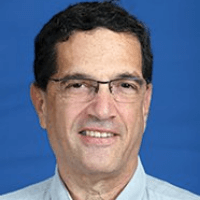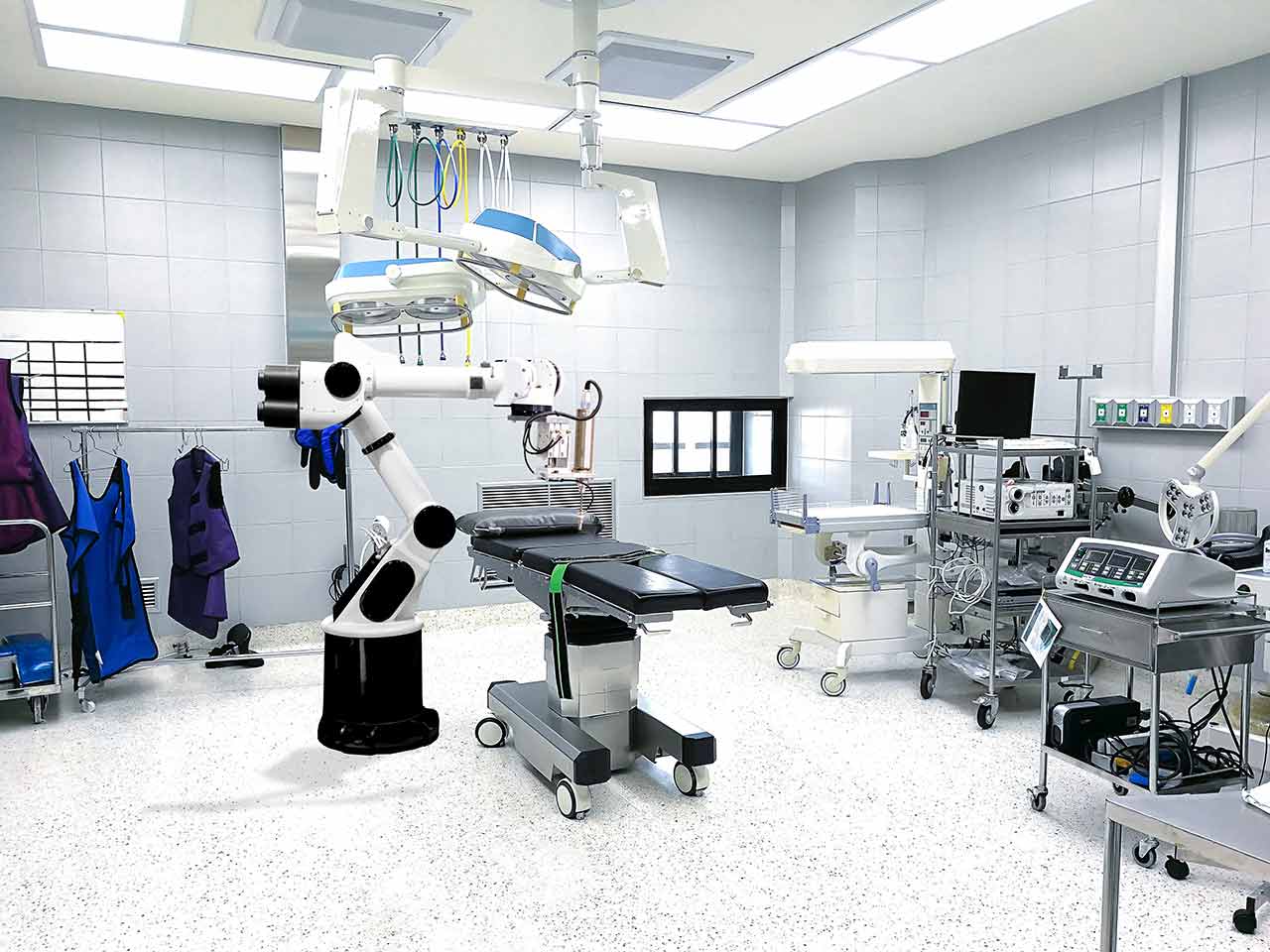
The program includes:
- Initial presentation in the clinic
- clinical history taking
- physical examination
- ophthalmologic examination:
- slit lamp examination
- pupil examination
- ocular motility examination
- ophthalmoscopy
- perimetry (visual field test)
- computer perimetry
- visometry (without correction and with correction)
- keratometry
- pachymetry
- refractometry (objective, subjective, cycloplegic)
- autorefractometry
- non-contact tonometry
- fluorescein angiography (if indicated clinically)
- optical coherence tomography OCT (if indicated clinically)
- gonioscopy
- photokeratoscopy
- doppler ultrasound of the retinal vessels
- nursing services
- consultation of related specialists
- treatment by chief physician and all leading experts
- explanation of individual treatment plan
Required documents
- Medical records
- Optical coherence tomography (if available)
Service
You may also book:
 BookingHealth Price from:
BookingHealth Price from:
About the department
The Department of Adult and Pediatric Ophthalmology at the Sheba Medical Center Ramat Gan offers the full range of services for the diagnostics and treatment of diseases of the eye and its appendages. A highly competent team of the department's specialists deals with the treatment of patients of all age groups – from young children to adults and the elderly. The department effectively uses the cutting-edge medical and technological developments for the treatment of common and especially severe ophthalmic pathologies. Structurally, the medical facility consists of an inpatient clinic, a day hospital, an outpatient clinic, an ophthalmic emergency service and progressive operating rooms for the surgical treatment of eye diseases. The department employs more than 50 highly qualified specialists, 30 nurses and medical technicians who have undergone special training. The department is headed by Dr. med. Amir Alhalel.
The department's doctors annually provide inpatient care for more than 3,000 patients, while about 4,000 patients undergo treatment on an outpatient basis. More than 3,800 surgical procedures are performed in high-tech operating rooms every year.
One of the primary focuses of the department is ocular oncology, which deals with the diagnostics and treatment of eye tumors. The department's specialists apply all their experience and technical resources for the preservation of vision and a high quality of life for patients. The treatment is based on an interdisciplinary approach, involving experts in oncology, genetics, neuroradiology, radiation oncology and other medical fields. Eye tumors are quite rare, but many of them pose a serious threat to the patient's life. To achieve remission and maintain vision, the treatment requires a professional and comprehensive approach. The department's therapeutic options in this field include surgical treatment, intravenous, intra-arterial and intravitreal injection of chemotherapy agents, radiation therapy, radiosurgery, etc. The treatment regimen is developed for each patient on an individual basis, taking into account the particular clinical indications, needs and wishes of the patient.
The department operates the Sam Rothberg Center for Glaucoma Service and Research. It is one of the largest highly specialized medical facilities of this kind in Israel. It successfully practices various methods of glaucoma therapy, including eye drops, laser treatment and progressive surgery. The center annually treats about 800 glaucoma patients, including infants and young children. The competence of specialists covers the treatment of both primary and secondary glaucoma.
The young patients are treated by a specially trained team of pediatric ophthalmologists. The special attention is paid to strabismus correction, treatment of amblyopia and other visual impairments in children. Depending on the severity of the clinical case, surgical treatment can be performed on both an inpatient or outpatient basis. The department also carries out preventive routine examinations of premature infants for the diagnostics of retinopathy of prematurity, diagnostics of congenital cataract and glaucoma. Besides clinical practice, pediatric ophthalmologists participate in numerous scientific researches aimed at finding innovative treatment methods and optimizing already existing techniques.
The department's range of medical services includes:
- Diagnostics and treatment of cataract
- Diagnostics and treatment of glaucoma
- Diagnostics and treatment of retinal diseases
- Diagnostics and treatment of corneal diseases, including corneal transplantation (inhouse Eye Bank)
- Diagnostics and treatment of neuro-ophthalmic diseases
- Diagnostics and treatment of benign and malignant eye tumors
- Diagnostics and treatment of inflammatory and autoimmune eye diseases
- Diagnostics and treatment of dry eye syndrome
- Diagnostics and treatment of blepharitis
- Diagnostics and treatment of eye infections
- Diagnostics and treatment of traumatic eye injuries, including chemical burns
- Diagnostics and treatment of pediatric ophthalmic diseases (special focus on the treatment of strabismus, amblyopia, retinopathy of prematurity, congenital cataract, glaucoma)
- Oculoplastic surgery (plastic and reconstructive interventions on the periorbital area and face, including eyelids, eyebrows, forehead, cheeks, orbit and lacrimal apparatus)
- Other medical services
Curriculum vitae
Dr. med. Amir Alhalel is a famous Israeli ophthalmologist with over 20 years of experience. He heads the Department of Adult and Pediatric Ophthalmology at the Sheba Medical Center Ramat Gan. Dr. Alhalel received his medical education at the Sackler School of Medicine of the Tel Aviv University. He also completed an internship in retinal and vitreous surgery at the Henry Ford Hospital in Detroit, USA. Of particular clinical interest to the specialist is retinal and vitreous surgery.
Research and Teaching Career
- Coordinator of advanced training courses in the specialty "Retinal and vitreous body surgery" at the Faculty of Medicine, Tel Aviv University, Israel.
- Author of numerous scientific articles and publications.
- Participant of numerous international and Israeli conferences.
Memberships in Professional Societies
- Israel Ophthalmological Society.
Photo of the doctor: (c) Sheba Medical Center
About hospital
The Sheba Medical Center Ramat Gan is the largest and leading Israeli hospital, which has also won wide recognition in the international medical arena. The hospital was founded in 1948 and today it is proud of its long and extremely successful clinical experience. The medical facility has 159 specialized departments, outpatient clinics and centers, as well as 75 laboratories. The infrastructure of the center forms a solid basis for the accurate diagnostics, comprehensive and the most effective treatment of pathologies in all fields of modern medicine.
According to the prestigious American Newsweek magazine, the medical center ranked among the top ten best hospitals in the world in 2019 – the rating is based on the efficiency of medical care, the level of service, compliance with international quality standards. In addition, the medical centre is the holder of the international JCI certificate, which is awarded only to the best hospitals all over the world.
The medical complex provides patients with the most advanced medical treatment and individual approach to each clinical case. If necessary, the patient can take part in clinical trials of new pharmaceuticals or treatment methods. The patients are offered high-tech medicine. For example, it houses the only virtual reality Rehabilitation Center in the world, as well as offers exclusive and progressive methods of imaging diagnostics for patients suffering from cancers and cardiovascular diseases.
One of the leading fields of the medical center is oncology. Cancer of various localizations is treated within the specialized Cancer Center. Thanks to the hospital's own unique developments in the field of oncology and cooperation with the University of Texas MD Anderson Cancer Center, the doctors practice innovative treatment protocols, which allow them to achieve complete cure or long-term remission even in the cases that are considered hopeless in many hospitals around the world.
Certainly, the key role in the success of clinical practice is also played by the presence of highly qualified personnel – the hospital employs dozens of leading doctors, including world-class professionals. Many doctors are lecturers at the Sackler School of Medicine of the Tel Aviv University. In addition to the treatment of patients, they are engaged in research activities and make an invaluable contribution to the development of medicine in Israel and around the world.
The hospital admits annually more than 430,000 patients for the diagnostics and treatment on an inpatient basis, while the number of outpatients reaches 160,000. These figures speak for themselves and confirm the authority of the medical center, which is ready to provide high-quality medical care to both Israeli citizens and foreign patients from all over the world. The hospital also performs about 50,000 surgical interventions, as well as more than 11,000 babies are born in the delivery rooms of the medical center every year.
The Sheba Medical Center Ramat Gan is rightfully considered the world leader in the field of medical care and has all the necessary medical and technical resources for providing both diagnostic and therapeutic procedures of any complexity – some of them are not available even in the developed countries of Europe and the USA.
Photo: (c) Sheba Medical Center, (c) depositphotos
Accommodation in hospital
Patients rooms
The patients of the Sheba Medical Center Ramat Gan live in cozy rooms with a high level of comfort. Each patient room has an ensuite bathroom with shower and toilet, with all the necessary hygiene items. The furnishing of the rooms includes a comfortable automatically adjustable bed, a bedside table, a wardrobe, a telephone, a TV, an air conditioner. Wi-Fi access is also available in the patient rooms. The center has special rooms for children. The special atmosphere of coziness and kindness allows young patients to feel as comfortable as possible.
Meals and Menus
The patient and the accompanying person are offered tasty and balanced three meals a day. If for some reason you do not eat all foods, you will be offered an individual menu. Please inform the medical staff about your food preferences prior to treatment.
Further details
Standard rooms include:
Accompanying person
During the inpatient program, the accompanying person can live with the patient in a patient room or a hotel of his choice. Our managers will help you choose the most suitable option.
Hotel
During an outpatient program, the patient can stay at the hotel on the territory of the medical center or at the hotel of his choice. Our managers will help you choose the most suitable option.





